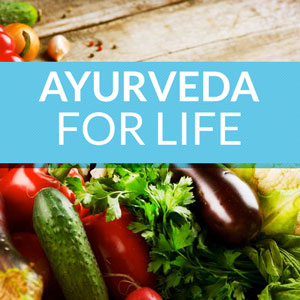This Harvard Guy Will Save Your Stomach
Plus Great Tips on Staying Healthy form Joyful Belly founder.
How many Harvard educated business executives who, after running their own successful companies, decide to quit and focus on improving nation’s health one belly at a time do you know? Recently I did an interview for Yogacity NYC with one of the most educated, passionate, but very easy going Ayurvedic practitioners in the US – John Joseph Immel. He is the creator of a thriving online community at www.JoyfulBelly.com and was very eager to share some cool digestion and anti-anxiety tips during our Skype interview.
N: Do you think there are specific benefits of learning Ayurveda for stressed out sleep deprived New Yorkers?
J: Ayurveda provides effective natural treatments for stress and its consequences such as anxiety, upset digestion, Irritable bowel syndrome, and chronic fatigue. Ayurveda is very similar to yoga; it increases body awareness and helps to create a healthy relationship with the body. In high-anxiety fast paced environment such as NYC, we tend to lose touch with ourselves by not paying attention at how we ARE at any given moment. It is all about what you DO. Ayurveda helps to get more comfortable with BEING and DOING. What’s most important, it provides easy steps on how to BE comfortable and healthy at any present moment.
N: What should be the priority when trying to prevent or reduce stress and its consequences?
J: It should be a combination of diet, daily routine and environment. When under stressful circumstances or when your routine is changing dramatically from day to day, you need to focus on supporting your body instead of giving it extra difficult tasks like digesting an extremely heavy fat loaded dinner. The stress-reducing diet is light and easy to digest, soft and hydrating. Avoid dry and raw dishes because your body requires a lot more energy to digest it. For example a sandwich is hard to digest, so during a busy stressful day, you should get a soup instead of a sandwich. Predictable daily routine also plays an important part in how rested or stressed you feel.
N: Stable daily routine sounds nice in theory but unrealistic for an average New Yorker. Sleep-deprived, we catch up on sleep on the weekends and stay out late to see friends. For many people it means a significant shift in their daily routine. Is it unhealthy by Ayurvedic standards?
J: Any change in the routine is stressful to the body and mind. It would be a lot healthier to get enough sleep throughout the week by going to sleep earlier. It is best to go to sleep by 10pm because our liver shuts down at 9pm by if we stay up it starts working again and won’t allow for a restful sleep. 10pm-3am is the time when your body gets the most rest.
N: And what did you mean by stress-reducing environment?
J: Every time I am in New York I am surprised by how many people have hard wood floors in the apartments. By stress-reducing environment, I mean a soft and cozy space. It can be a plush carpet or a cozy couch where you can relax. Also, hot air is very drying to the body and eyes. Dry eyes will increase stress. It might sound silly but while in New York I used to wear glasses in the subway to avoid drying out my eyes. It really works as a stress prevention tactic.
N: What if someone had a big hard-to-digest lunch and besides being stressed out, now his stomach feels heavy and anything but healthy. What can we do then?
J: If you ate bad and your stomach feels heavy there are 2 miracle tactics that will work wonders in helping your digestion to get back on track:
– Warm water – it is a powerful medicine. Warm water will help increase circulation to the digestive system and heal stagnation. Take small sips of warm water not gulps. Ginger tea or any other spicy tea will work even better.
– 10 min break – quite often we eat while doing something else, working at the computer, reading, sometimes even walking. Our digestive system requires good circulation and up to 60% of our internal energy to absorb and digest the food. If the energy and blood is forced to go to other parts of the body (brain if you are working on the computer, legs and arms if we are walking) then there won’t be enough circulation in the stomach to digest food well. Take a break and bring your attention to the stomach, send good thoughts to your belly or just observe whatever is happening there. It will help your belly work though the issues.
N: There is a lot research on interconnection of nervous system and our digestion. Is it true according to Ayurveda that while stressed it is better to avoid eating until you can calm down?
J: It depends on the cause of the stress. Sometimes we get stressed out because of the lack of nutrition and skipping meals. In this case one should take a break and take care of this arising need before it gets out of hand. During high-stress situations caused by external circumstances, our sympathetic nervous system takes over and digestion shuts down. Our body is preparing for ‘flight or fight’ situation and needs circulation for other functions besides digestion. In this scenario, if the stressful situation won’t last log, it might be best not to overload body with food. Having a light meal or skipping food all together will serve the body best.
N: What is the best dish to have during high-stress situations if they last more than several hours or days?
J: Light, easy to digest food is the best option. However, do not eat out of a habit or because it is lunch time, listen to your body and mentally determine your hunger level. Often you will notice that you are not that hungry when stressed because your digestion system is not functioning properly. If you are hungry, split pea soup or carrot soup is good, as is almond milk, which is very nourishing and soothing. There is an Almond Milk Chai recipe on the Joyful Belly website that can be a good anti-stress drink for New Yorkers. You need to give as much rest to your body as possible. Our digestion can take up to 60% of our metabolism; the goal is to safe vital energy by reducing the workload on digestive system.
N: It sounds logical that while stressed, we should put the least additional pressure on the digestive system by getting something light to eat. But I start feeling stressed out just by the idea that I need to be looking for specific items to eat when short on time and have a huge to-do list! How to avoid adding additional stress by making lunch or dinner a complicated ordeal?
J: Start your day with a 10 min meditation or reflection, whatever you wish to call it. Think of the day ahead of you and what needs to be done. It will give you a clear perspective and help you build an outline for your day so you stay in control, not the circumstances. It is also the time when you can plan out your meals and find the healthiest alternatives.
N: We are talking so much about digestion. Why is it so important?
J: Digestion determines how we feel inside of our body. Sluggish bad digestion leads to low levels of energy, dull skin, and in general not a very happy person. Food turns into blood and determines our blood chemistry. We are only as healthy as our blood chemistry is. Our nervous tissue is very delicate and it is constantly surrounded by the blood. Do you remember the story of ‘The Princess and the Pea’ ? The sensitive princess felt the pea even under the mattress. Our nervous tissue is also very sensitive. If our blood chemistry is bad then nerve cells suffer. It shows up as dosha imbalances: Vata comes out as anxiety, Pitta – as anger and irritability, and Kapha – as sluggishness. If digestion is healthy, then the blood chemistry is good, and the nervous system is strong. So we get a happy and healthy person. We literally are what we eat.
N: Often it is difficult to stick to the easy to digest healthy diet in New York with all the social occasions that involve dining out and so many great restaurants.
J: Social meals are part of our culture and no socially involved member of the society should try to completely avoid them. However, you should try to take care of your digestion after a heavy meal by giving it a break. Going out 2 days in a row and having heavy hard-to-digest food will be difficult for the body. It needs time to recover and get back into balanced state, the same way muscles need a break after a difficult workout.
N: Is there a way to have a party for friends and family without overloading the body but still enjoying some tasty food?
J: Definitely! There are tons of Ayurvedic recipes on my website that can be served as delicious appetizers like Dates Stuffed with Almonds and Ginger. It is always a big hit with guests! I also like Butternut Squash Soup with Fennel and Ginger as a perfect starter for Fall parties. Bananas with Ghee and Cardamom is a very satisfying easy-to-digest dessert. I am also currently working on the recipe for Ayurvedic pizza.
N: What are some foods that are best to avoid when dining out? An Ayurvedic definite no-no?
J: Anything fatty, heavy and cold, such as ice cream. It is ok to indulge once in a while though, especially when you know how to avoid feeling heavy and sluggish afterward. Try to sprinkle some cinnamon or cardamom on your dessert to make it easier to digest and have it during lunch time when your digestive fire is at its strongest. This way your body will work through it before nighttime and it won’t affect your sleep quality. There is a great alternative to the traditional ice cream on Joyful Belly – Rose Pistachio Saffron and Cardamom Ayurvedic Ice Cream. It is such a delicious treat!
N: Your recipes sound so yummy and you have so many on your website! Where do they come from?
J: Most of them is the result of inspiration. Ayurveda and cooking are my two great passions. I love to cook and to treat people. My recipes are based on Ayurvedic principles of food combining and targeted towards American audience. Most Ayurvedic cooking books and websites contain mostly Indian cuisine recipes. I am focused on adapting Ayurvedic principles and using them to create American cuisine – friendly recipes.
N: Besides food, what are some other go-to remedies for stress and anxiety?
J: Rest is crucial, both mental and physical. Rest your body, rest your digestive system, and go to sleep on time. Another powerful remedy is the correct use of spices. Some of the spices stimulate circulation; others build healthy immune system and help digestion. You could add spices to teas or to any dishes. Cinnamon and ginger are warming in their nature, while fennel, for example, is cooling.
N: Energy, especially ways to get more of it, seems to be all the rage nowadays. Every pharmacy and deli have 4 Hour Energy Shot, 6 Hour Energy Drinks that come in all sorts of flavors, some even claim to be organic. What can Ayurveda offer as an alternative?
J: First of all, an individual has to ask a question: why do I lack energy? There are two possible answers:
– One is deficiency of nutrients, which happens when we don’t eat balanced meals, when we skip meals, and don’t get enough rest. This scenario will lead to Vata imbalance and requires a nourishing diet and nurturing life style to replenish.
– Second possible answer is excess sugar, which can be caused by too much heavy, oily, unnatural food, alcohol, and sugar. It leads to Kapha imbalance, when one feels sluggish, sleepy, and gains weight. To alleviate Kapha imbalance, one should follow a light diet regimen and add more physical activity. People with too much Kapha will benefit from starting a day with a very light breakfast of grapefruit with a little bit of honey and ginger and ending their day with a light dinner. Kichiri[kitchari] or any other vegetable soup would be a good Kapha dinner.
N: What is one thing that you would like everyone to adapt from Ayurveda to their life?
J: Ayurveda offers a wonderful meal paradigm that provides an easy to follow framework for all the daily meals. It says: make breakfast a spiritual meal, lunch a joyful meal, and dinner a nurturing meal. Breakfast should be simple, providing all the nutrients and waking up digestive fire. There is no need to overload or indulge early n the day. During lunch time, digestive fire is at its strongest and you can enjoy a complete balanced meal. If you are craving something, this is the time to have it because you body will have enough energy and time to digest it. Dinner should be a light and nourishing meal. If you are tired in the evening, your digestive system is tired also. You need to take care of your digestion and support it, instead of overloading it with a heavy dinner.
N: You live in North Carolina, how can New Yorkers get a consultation with you to receive a more personalized advice on diet and life style?
J: I do phone and Skype consultations and also come to New York a few times a year. I would recommend starting out by registering on Joyful Belly (http://www.joyfulbelly.com/Ayurveda/account/account.php?action=logout) and reading some introductory articles on Ayurveda and taking a dosha test (http://www.joyfulbelly.com/Ayurveda/assessment/Dosha) . We have a huge library of Ayurvedic recipes (http://www.joyfulbelly.com/Ayurveda/recipe/favorites) that can be sorted based by dosha type, imbalance that you are looking to correct, meal time, and ingredients. You can create your own customized but very flexible diet on Joyful Belly and use it as your daily meal guide with recipes. I am also happy to answer any question over email. Ayurveda is my passion and I love helping people getting to know their bodies better.
You can make an appointment with John by email him at joseph@joyfulbelly.com or calling 828-348-4880
Related Articles
- Fall Vata Farmers Market Guide (mindbodygreen.com)











